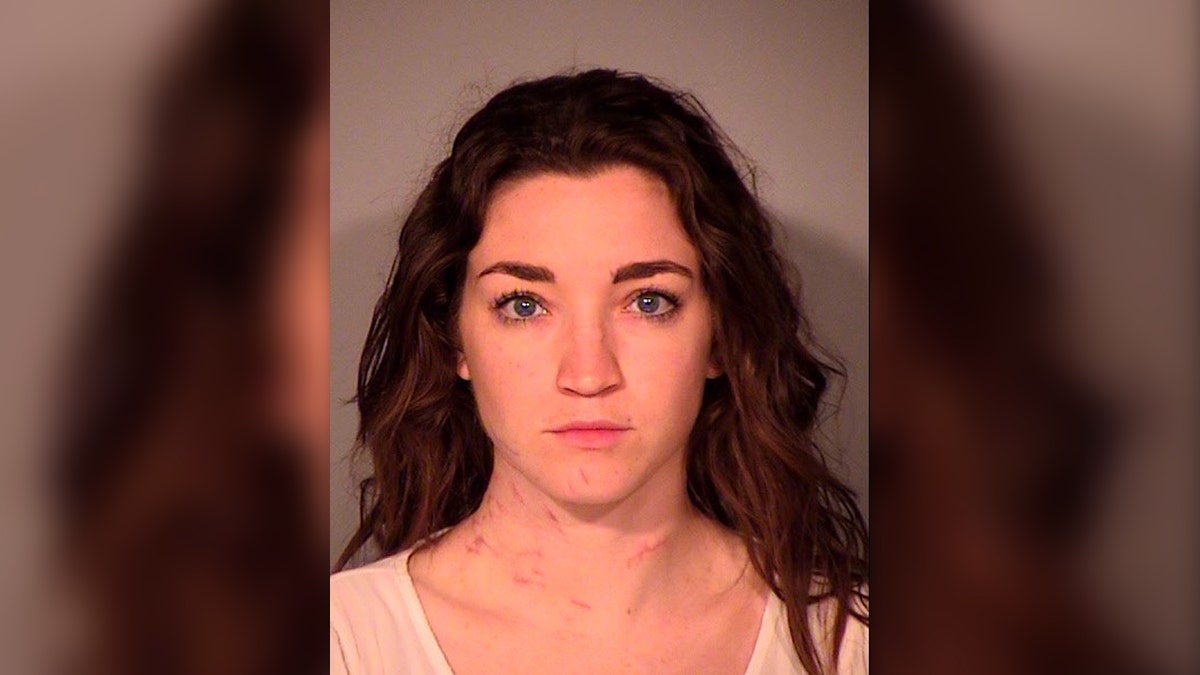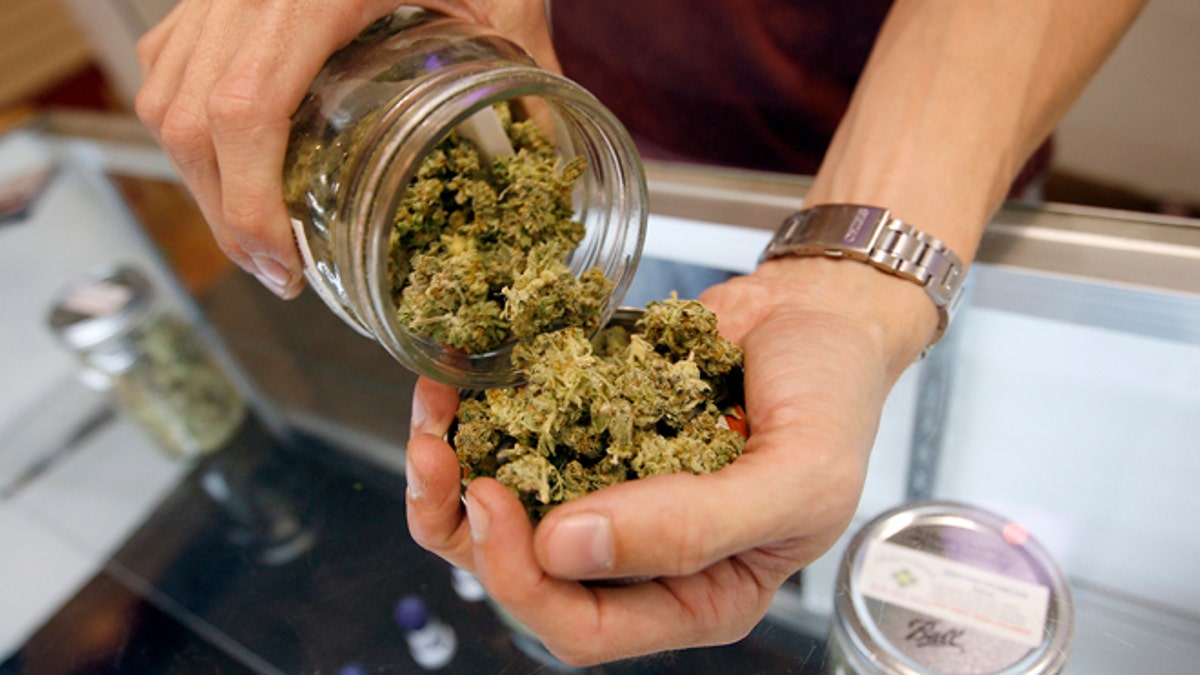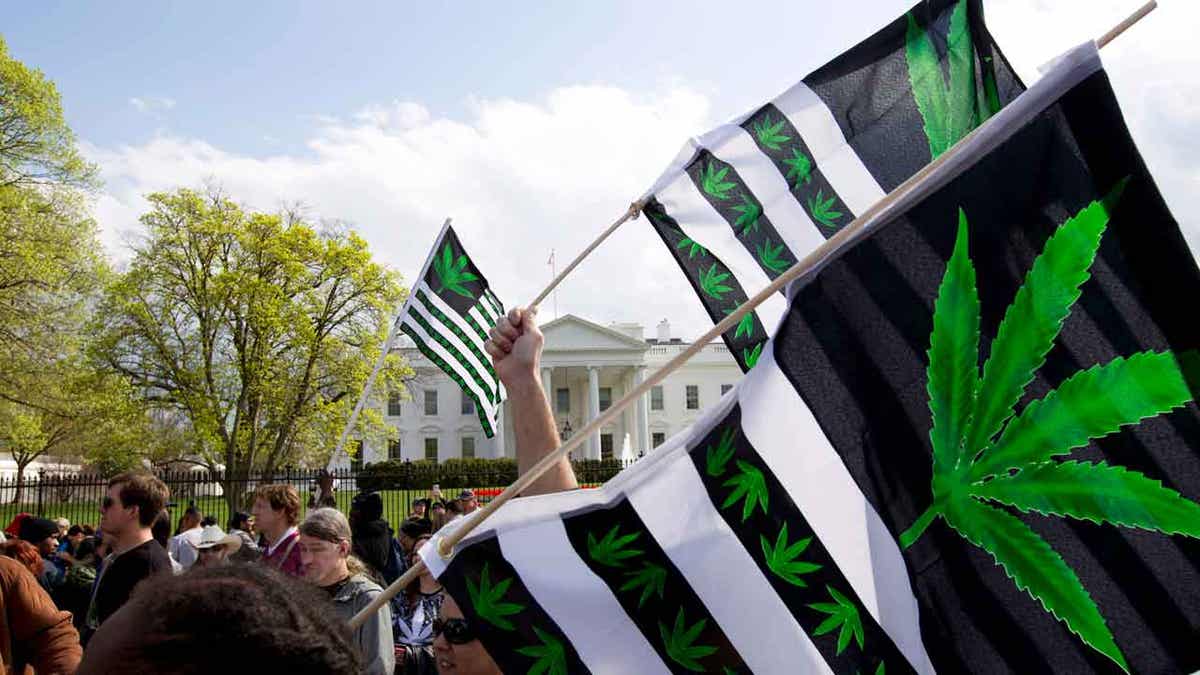This woman suffered marijuana-psychosis. She says Bryn Spejcher and the man she killed were both victims
Anti-marijuana advocate Heidi Swan called out California lawmakers, the cannabis industry and the media for shielding the drug's mental health risks from the public.
An anti-marijuana advocate accused California lawmakers of valuing the cannabis industry's profits over Americans' health and the media of intentionally keeping the drug's risks hidden from the public as recreational use grows across the country.
"Where are the messages that say this can increase your risk for depression, anxiety, psychosis, schizophrenia, increases the risk of suicide?" said Heidi Swan, a board member for Parents Opposed to Pot and a victim of marijuana-induced psychosis. "Where are those billboards? Where are those warning labels on the product? There are none."
The health care data analytics firm Truveta recently reported that there is a "complex relationship between cannabis use and mental health disorders." The Jan. 11 study found a nearly 50% increase in marijuana-induced psychosis emergency department visits between 2019 and 2020. A May study published in Psychological Medicine found that up to 30% of schizophrenia diagnoses in men ages 21 to 30 could have been prevented if the individuals had not been heavy marijuana users.
WATCH MORE FOX NEWS DIGITAL ORIGINALS HERE
But Swan said research and testimonies from doctors have been "dismissed by our elected leaders, have been dismissed by public health organizations, have been dismissed mostly by the media."
Swan attended the recent trial of Bryn Spejcher, a 33-year-old who stabbed her date over 100 times before stabbing herself in the neck during a cannabis-induced psychotic episode. Spejcher was a novice user of marijuana who testified she didn't know the potential side effects of THC.
Both Spejcher and the man she killed, Chad O’Melia, "are victims of the marijuana industry and of the state of California" because they weren't properly warned, Swan said.
The anti-marijuana advocate worked with California lawmakers on two bills that would have added regulations on cannabis sales. The Cannabis Right to Know Act, introduced in 2022, proposed putting warning labels on all THC products to inform buyers of health and safety risks. The Cannabis Candy Child Safety Act, brought forward last year, sought to regulate cannabis candy packaging to protect against attracting unassuming children.
MARIJUANA WITH HIGH THC LEVELS LINKED TO ADDICTION, PSYCHIATRIC ILLNESS, STUDY FINDS

Bryn Spejcher was convicted of involuntary manslaughter in December but received no prison time after killing her boyfriend while having an episode of cannabis-induced psychosis. (Ventura County District Attorney)
"We have huge public health campaigns about DUIs. We know these things, that if you're impaired, you should not drive," Swan said. "There is no warning about that with marijuana."
The Cannabis Right to Know Act died awaiting a House vote, while Gov. Gavin Newsom vetoed the bill aiming to prevent kids from ingesting THC candy.
"They were educated all along the way. All of them heard stories that I am sure they would rather not have heard. And in the end, the bill was pulled due to pressure from the industry," Swan told Fox News. "So, we have no protections in California. We have no warnings about the mental health harms."
A 2022 Los Angeles Times investigation uncovered corruption in the cannabis industry, with businesses bribing some Golden State lawmakers in exchange for licenses and more lenient regulations. As a result, state officials launched an audit to end the illegal activity, but Swan said the revenue stream coming from the booming industry still overshadows any interest in public health.
ALARMING NEW TREND IS EMERGING AS YOUNGER AMERICANS ESCHEW ALCOHOL ON DATES, GO MORE FOR CANNABIS
Lawmakers aren't "looking at the ledger properly," she said. "They're looking at tax revenue, but they're not looking at the costs. And there are incredible costs."
"The state of California is more interested in the health of the marijuana industry than they are of their own citizens," Swan told Fox News.

Swan helped draft two bills that would have added warning labels to cannabis products and restrict companies from packaging THC-infused candy in a way that children could mistake. (David McNew/Getty Images)
Despite a recent influx of reports linking psychiatric symptoms with the drug, an August study published in Psychiatry Research tracked 210 teenagers and young adults and found that continuous cannabis use over two years did not increase risks of transitioning into psychosis or worsening clinical symptoms, overall neurocognition, or functioning levels.
Since 2012, 24 states have legalized marijuana for adult recreational use. Despite her personal experiences with the substance, Swan voted in favor of legalization during the 2016 California election, thinking it would be easier to regulate.
"California rolled out legalization without any thought to public health," she said. "It's one of the narratives of the industry. ‘Legalize it so we can regulate it.’ And then you try to regulate, and they come in with all their money and all their influence and just smash it down."
Swan had never heard of cannabis-induced psychosis — a possible side effect of marijuana use that includes episodes of delusion, hallucinations and loss of contact with reality that are associated with conditions like schizophrenia — until she experienced it when she was a teenager in the early ‘90s.
"I lost touch with reality, and it was really scary, so I stopped using it," she said in a previous interview with Fox News. But her brother, K. Anderson, once enjoyed the "fun house" effect the drug gave him and continued to use marijuana "from the time he was in middle school until he got his graduate degree," Swan said.
"He went on to try crack and became a homeless drug addict with schizophrenia," she added. "He was lost to us for a decade."

Swan said the public is not being properly educated about the potential side effects of cannabis, and are instead being marketed the drug by big businesses and celebrities. (AP Photo/Jose Luis Magana, File)
Swan and her brother finally reconnected when Anderson contacted his sister after finishing a year in jail and receiving treatment in a rehab facility. It wasn’t until almost a year later that Swan realized her brother suffered from an undiagnosed mental illness.
The pair wrote a book loosely based on Anderson’s life, "A Night In Jail," to raise awareness about the risks of marijuana usage.
CLICK HERE TO GET THE FOX NEWS APP
Swan said tragedies like the Spejcher case are just "a foreshadowing of what's to come" if cannabis continues to be marketed to the public as safe.
"The celebrities, the athletes, the musicians who are all fronting marijuana companies, they post on social media themselves using and tell young people that it's cool and that it's safe. They should be held accountable somehow for their misrepresentation," Swan told Fox News.
"How does a prevention advocate stand up against that kind of marketing, that kind of appeal to youth?" she added. "The least our government can do is to put out basic information to counter that."











































